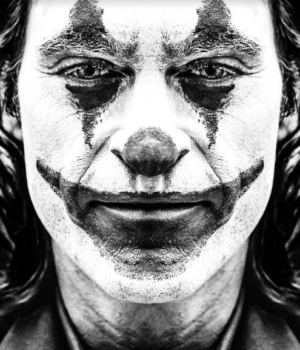Written by Charissa Roberson
Even before its release on Oct. 4, Todd Phillips’ Joker, a comic-book adaptation focusing on DC Comic’s most famous villain, was making waves on an international scale. As reported by Screendaily, Joker won the Golden Lion at the Venice Film Festival, which is the highest award presented to a film.
However, controversy quickly began to swirl around the film’s global release. Many critics feared that Joker’s disturbing violence might spark similar actions in viewers who sympathized with the Joker—or Arthur Fleck, as he is introduced at the start of the film. The fact that audiences could feel sympathy for this super-villain shows just how striking Phillips’ adaptation of the character is. Backed by a stunning performance from Joaquin Phoenix, Phillips shows the Joker through a new lens, following him as he descends from a lonely, delusional man into a grinning, dancing clown who kills with glee.
The film is a true character-piece, with Phoenix as its break-out star. Our eyes are riveted to the screen—we cringe as Fleck is mocked and beaten by ruthless strangers, we beg for him to succeed as he pursues his stand-up comedy career, and we watch in mute horror as he releases the reins of his own reality. For the first time, we understand the Joker of films like The Dark Knight (2008).
But what if this crazy, murderous character is presented as too relatable? Fears arose that others who feel abused by society might see the Joker as a role model, leading to concerns about mass violence connected to film screenings. According to CNN, cinemas ramped up their security for opening night, and law enforcement officers were warned about possible threats. So far, however, the media’s fears appear to be unsubstantiated; the film opened to great box office success, with Oscar buzz surrounding Phoenix’s performance.
Nonetheless, the Joker controversy, if nothing else, has drawn attention to the difficult experiences of those suffering from mental illness. Warner Bros. stated in an official response to Joker criticism that “one of the functions of storytelling is to provoke difficult conversations around complex issues.” As Arthur Fleck asks, “What do you get when you cross a mentally ill loner with a society that abandons him and treats him like trash?” The Joker is an extreme example—but perhaps we need to be asking the question.




